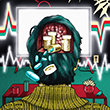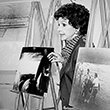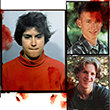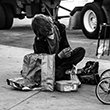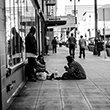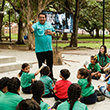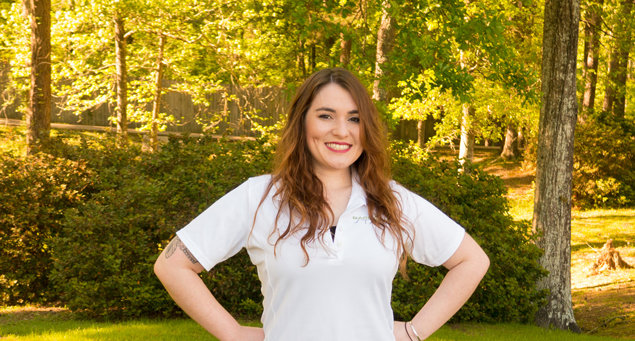
Putting Faith in Herself Dianna Ré
An eight-year addiction to heroin and painkillers had left Dianna Ré with veins so scarred from shooting heroin that it was almost impossible to find them when she passed out and needed a blood transfusion. No longer able to afford her expensive drug habit, her withdrawal symptoms were severe.
Ré asked her mother for money. Instead, her mother got her help.
When Ré arrived at Narconon Louisiana New Life Retreat, a residential drug rehabilitation facility spread over 15 acres in Denham Springs, Louisiana, she was hurting, tired and agitated. But when she saw the property’s sprawling lawns and abundance of pine trees, oaks, magnolias and crepe myrtles, Ré felt soothed. Then, a Labrador retriever ran up to greet her and she smiled.
The experience was different than the other treatment programs Ré had attended, without success. This time it worked.
Ré says the difference was that at New Life Retreat, one of 39 Narconon centers worldwide, no pharmaceuticals or replacement drugs like methadone were used to wean her off her drug of choice. Instead, Narconon’s unique drug-free approach to withdrawal kicked off her successful journey to recovery. It was also important to Ré that the New Life staff—as is the case at all Narconon facilities—included people who themselves had struggled with drugs. “People who have never been in an addict’s shoes shouldn’t try to tell them what to do,” she says.
But Ré’s favorite thing about Narconon is that, unlike other programs that failed to help her, students are urged to put their faith in themselves, because they have the power to remain drug-free. “The first step in AA-type programs is believing that you’re powerless to do anything about your addiction,” said Ré. “I didn’t feel powerless.”
And she wasn’t. Now 25 years old, Ré broke free from her crippling drug dependency, successfully graduating from the Narconon program in 2012.
“Narconon teaches people how to handle the way they process life’s pressures,” says Tom Steiner, co-founder of New Life Retreat. Because people who use drugs tend to “solve problems based on their past, they react to stress by getting loaded. It’s important to break the cycle. At Narconon we do.”
Living in the Present Jason Good
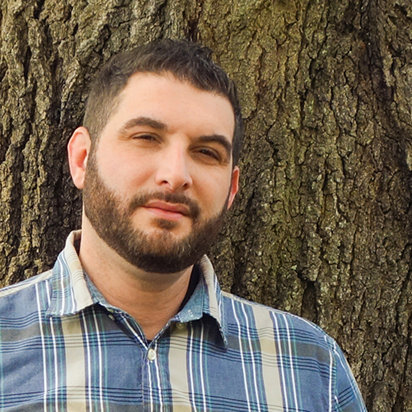
Jason Good, a University of Miami psychology major with a cocaine habit, was on a binge at a Florida crack house in 2006 when a group of drug dealers held him hostage.
“They took my car, my keys and belongings,” Good recalls. “I ran for my life and managed to call my parents.”
He had already been to rehab six times. “All they did was put me on psychotropic drugs and told me to pray that I don’t use drugs again. I would use cocaine the day I left.”
Then Good received treatment at a Narconon center in California, where he spent three months. He has been clean ever since, and with a decade drug-free, it’s easy for him to see why his earlier stints in rehab weren’t successful. “My mind was so clouded from years of drug abuse that I didn’t have the capacity to be honest and open,” he says. “How can you counsel somebody who isn’t there?”
The Objectives drills at Narconon helped Good to clear his head and be an active participant in his recovery. “I was able to get myself unstuck from the past and be in the present,” he says.
Before he underwent New Life Detoxification, Good explains, “I used to think about cocaine all the time, but then slowly my cravings were gone.” Narconon Life Skills Training made Good feel as though he were “born again as an adult.”
Today, Good is the director of marketing and promotion Narconon Suncoast in Clearwater, Florida.
Empowered to Change Derek Heiblim “I had convinced myself of things that weren’t true.”
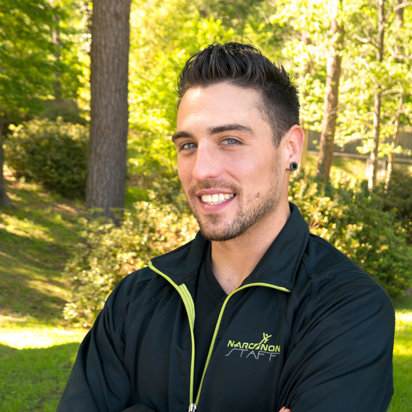
Derek Heiblim was 22 and a French-trained chef in one of New Jersey’s finest restaurants when he began the Narconon program fresh from a psychiatric ward, where he had been confined for eight days.
He was, he recalls, “really beat-up”—a damaged soul who had been using heroin and crack cocaine since he was 14. Heiblim’s drug habit seemed to defy logic. “My family was awesome. I did well at school and never had a problem talking to girls,” he says. “But there was this loneliness in me and a voice in my head that kept saying my life had no ultimate purpose.”
His addiction was bad enough that “not being alive seemed like a good idea,” Heiblim recalls. “I had convinced myself of things that weren’t true—that my family hated me, that the world would be better off without me. The irrational thoughts were because of my drug use and my transgressions—I was buying drugs, dealing drugs, passing out in crack houses, and once spent 70 days in jail for possession.”
Narconon’s Objectives helped Heiblim to turn a corner. The drills boosted his self-confidence so that he felt empowered to change. “There have been times in my life when I told myself I should stop drugs because I’m upsetting my mom or setting a bad example for my younger sister,” Heiblim says. “But before going through Objectives, I had never wanted to stop because I wanted to stop.”
After graduating from the Narconon program in 2008, Heiblim joined the Narconon staff and has since been promoted to case supervisor.



